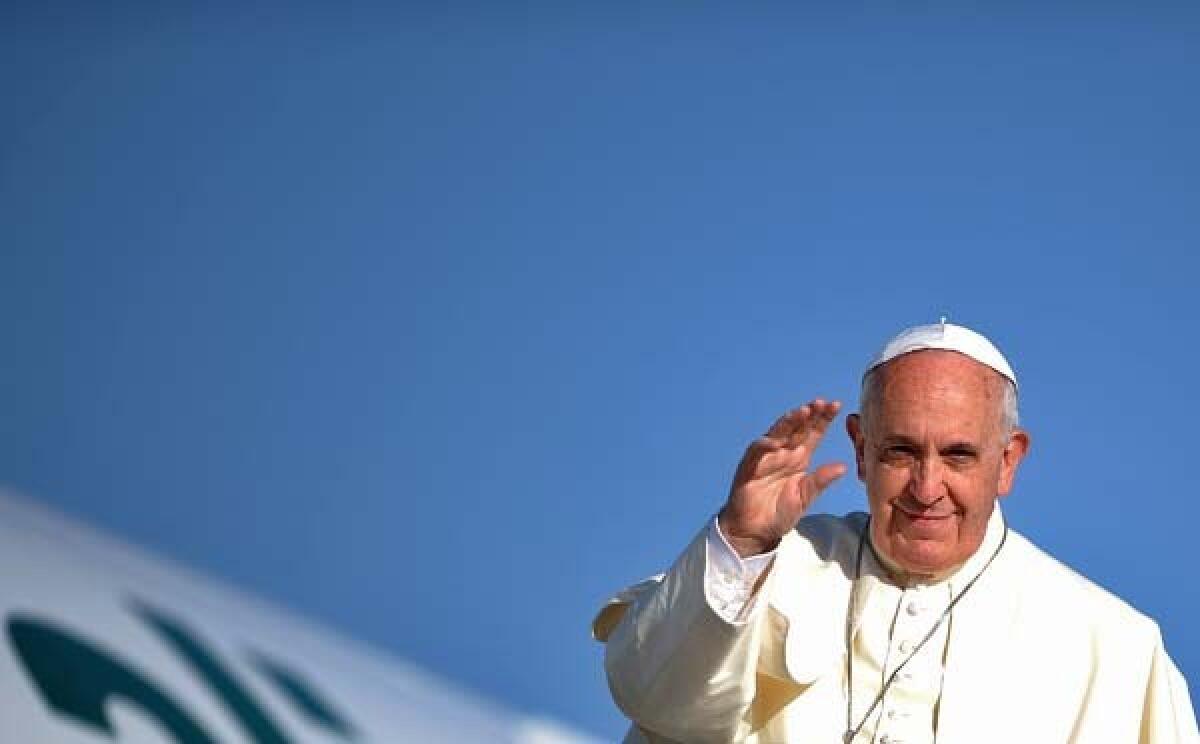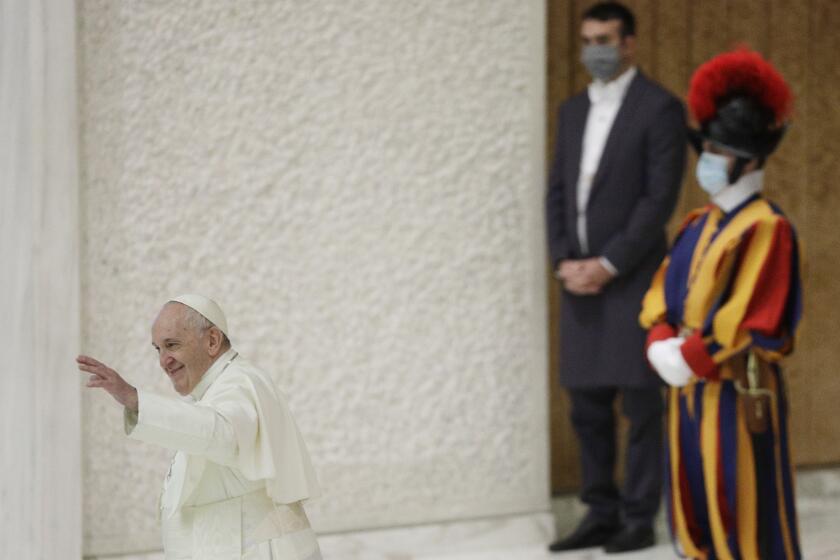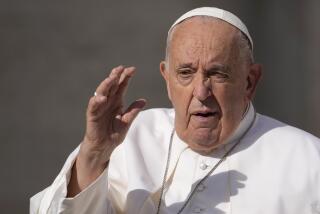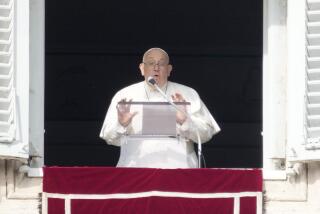Op-Ed: The pope spoke out. What about you, Amy Coney Barrett?

Pope Francis’ declaration of support for civil unions has attracted predictable responses from Roman Catholics around the world. Conservatives, such as the bishop of Providence, R.I., accused the pope of contradicting “what has been the longstanding teaching of the church about same-sex unions.” Liberals, including gay rights activists within the church, applauded the statement as an opening for those who have felt marginalized by church teaching that restricts marriage to a man and a woman.
The Vatican insists that the pontiff’s statement does not change Catholic doctrine, and it is also true that Francis was already on record supporting civil unions. As cardinal and archbishop of Buenos Aires, Francis (then Jorge Mario Bergoglio) supported the legalization of civil unions in Argentina.
Although the pope’s comments have excited lots of commentary, pro and con, among Catholics, it’s certainly not incumbent upon every Catholic to declare a position on the issue. Many, I’m sure, welcome a gesture of openness that will affect loved ones within the church. Others will see the matter as irrelevant to their own lives.
Despite Francis’ comments, Catholic doctrine’s stance on homosexuality hasn’t changed, and many say the Church still falls short.
Still, it would be instructive to hear how some Catholics understand the pope’s statement. Looking at you, Judge Amy Coney Barrett.
Because of Sen. Mitch McConnell’s predictable hypocrisy and the Senate Republicans’ breathtaking audacity, you’re slated to begin a lifetime tenure on the Supreme Court, where you will likely rule on questions related to reproductive rights and same-sex marriage. As a devout Catholic, do you have any thoughts on the pope’s statement in defense of civil unions?
Let me be clear. A public official has every right to allow her views to be informed by religious convictions — as long as her conclusions do not compromise the rights of others.
As I’m sure the judge knows from her study of the law, one of the crowning achievements of the founders, as embedded in the Constitution, was the rejection of majoritarianism, the notion that the majority dictates the rights and the behavior of everyone else. Although we have been far too dilatory in enacting those principles — especially for women, for people of color and non-heterosexuals — our charter documents provided for the protection of the rights of minorities.
Another effect of the pontiff’s statement is, paradoxically enough, to embrace the notion of the separation of church and state, an American innovation. We are far, far removed from the “great medieval synthesis,” when the Roman Catholic Church dictated the policies of the Holy Roman Empire. Francis’ comment essentially removes the “blessing” of same-sex unions from the religious sphere to the civil, at least for now, but he is doing so with a strong theological endorsement: “Homosexuals have a right to be a part of the family,” Francis said. “They’re children of God and have a right to a family. Nobody should be thrown out, or be made miserable because of it.”
Barrett’s testimony before the Senate Judiciary Committee was a masterpiece of uncontroversial evasion, which I’m sure is how she was coached to comport herself; it’s how all high court nominees since Robert Bork have behaved during the confirmation process. Her only slip was to refer to gays in terms of “sexual preference,” which suggests that sexual orientation is volitional. Science (as she must know) has rebutted that notion. As one of my first graduate students, a gay man, told me, “In light of the discrimination we face, why would anyone choose to be gay?”
Back in 2013, Pope Francis caused another furor over sexual matters and the church when he told an airplane full of reporters, “If a person is gay and seeks God and has goodwill, who am I to judge?”
But Amy Coney Barrett is a judge, and she will have a major voice in deciding these issues — not merely for herself , but for millions of Americans.
Are homosexuals children of God? Do they have a right to a family? Is the separation of church and state constitutional?
Judge Barrett, would you care to comment?
Randall Balmer teaches at Dartmouth College. His book about the separation of church and state, “Solemn Reverence,” is scheduled for publication in February.
More to Read
A cure for the common opinion
Get thought-provoking perspectives with our weekly newsletter.
You may occasionally receive promotional content from the Los Angeles Times.











